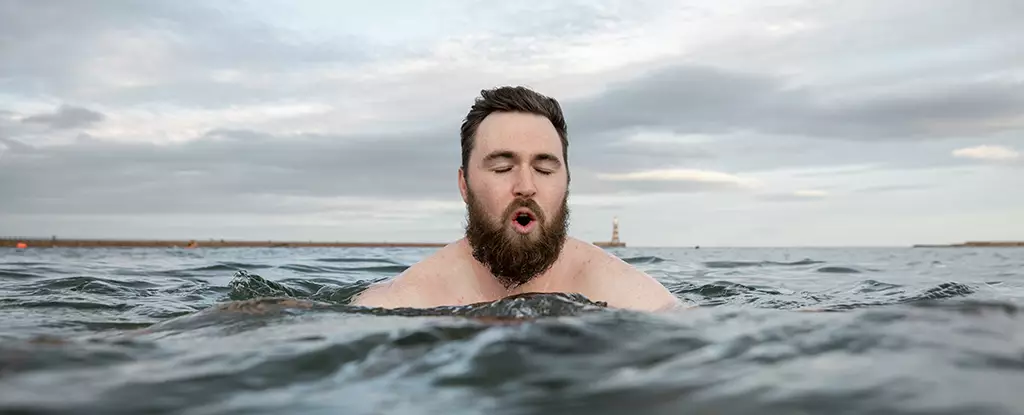Cold water swimming isn’t just a bone-chilling rite of passage for thrill-seekers; it’s an intense invitation to awaken the latent resilience within us. Every plunge into icy waters is a powerful reminder of our physiological limits and opportunities for growth. The new study from the University of Ottawa shines a glaring spotlight on the transformative effects of this frigid ritual, showing that our bodies might be more adaptable than we’ve dared to believe. It seems the instinctive dread of that initial cold shock is part of a larger narrative about our capacity to endure and excel under duress.
As physiologist Glen Kenny suggests, cold exposure could be the key to tuning up our cellular machinery, emphasizing the duality in cold water’s nature: a terrifying adversary that can simultaneously serve as a potent ally in combating diseases and slowing down cellular aging. In a world where comfort is championed, the notion of seeking discomfort through cold exposure seems almost radical. Yet, perhaps it’s time to embrace this radicalism, as it could hold the key to a healthier existence.
Coping Mechanisms in Action
What stands out from this study is the extraordinary speed at which the human body can adapt. The dramatic chaos observed during initial exposure—where autophagy processes falter and inflammation spikes—eventually gives way to a stabilizing effect that signals a robust coping mechanism. This transformation reflects a remarkable narrative of resilience, resilience that modern society seems to overlook in favor of sedentary comfort. If cold water swimming can teach us to repair and rejuvenate at the cellular level, it urges us to reconsider our daily habits.
However, let’s not ignore the challenges. The initial response to cold is a state of turmoil, a frantic recalibration that screams “survival” rather than “thrive.” This chaos is a testament to our innate fragility but also a clarion call for growth. The discomfort of cold water acts as a purgative, washing away the ennui of modern complacency. Each subsequent dip isn’t just a challenge to our physical comfort; it’s a rebellion against the sedentary lifestyle that has hollowed out the vitality of many.
Limitations and Lessons Learned
However promising the findings may seem, it’s crucial to maintain a critical perspective. The study involved only ten healthy young male participants, raising questions about the generalizability of its implications. The effects on a more diverse demographic remain unexplored, and the limited sample size indicates that these findings should be seen as the beginning of a more extensive inquiry rather than a definitive conclusion. Are we truly equipped to make sweeping claims about cellular health revival based on a mere ten subjects?
Moreover, the controlled lab setting fails to mimic the dynamic and multifaceted experience of cold water immersion in natural environments. Past studies have indicated that cold air and cold water invoke different bodily responses. It begs the question: can we trust a laboratory to encapsulate the raw, unmediated human experience of plunging into icy chaos?
Wielding the Power of Cold Exposure
That said, the potential benefits of promoting autophagy and mitigating inflammation are too significant to overlook. The implications extend beyond mere wellness fads; they challenge us to confront the underlying narratives we’ve constructed around discomfort and survival. By acknowledging the discomfort of cold water as a pathway toward rejuvenation, we can dismantle the barriers that culture has built around physical vulnerability.
Embracing regular cold exposure empowers us not only to adapt but to thrive in adverse conditions. It’s a clarion call to encourage individuals to step beyond the confines of their heated bubbles, embracing – or, perhaps more aptly, embracing the discomfort of the cold water to unlock hidden reservoirs of strength. In doing so, we may find not just improved cellular health but a heightened sense of agency over our own bodies in an increasingly challenging world.
Ultimately, as we tread the waters of scientific exploration, the question remains: are we prepared to welcome the chilling truth that lies just beneath the surface?


Leave a Reply